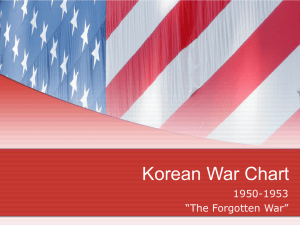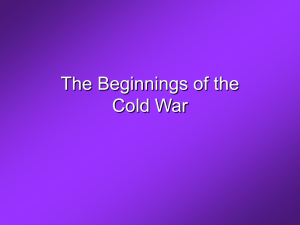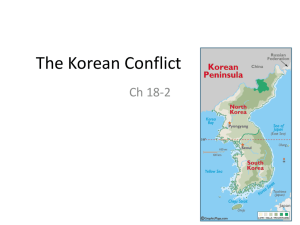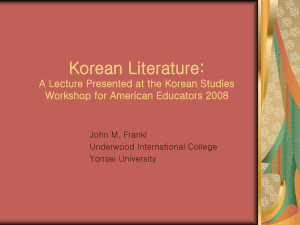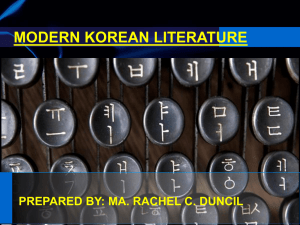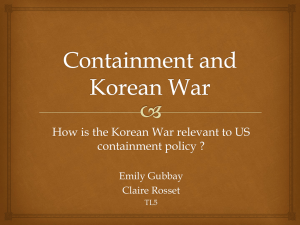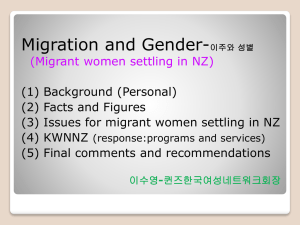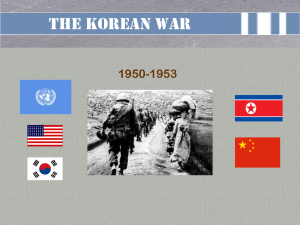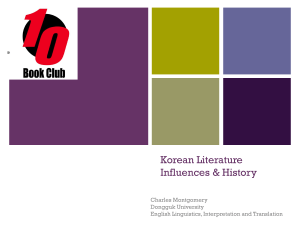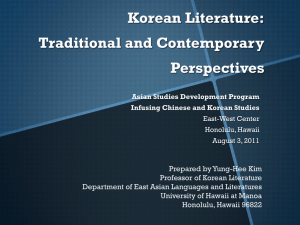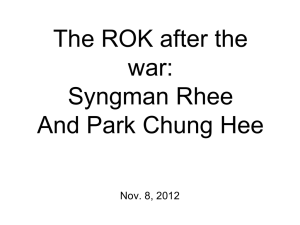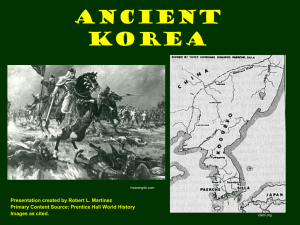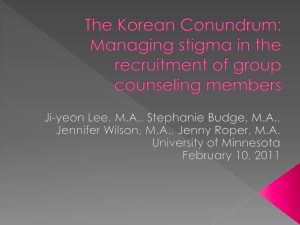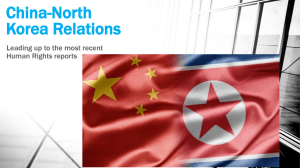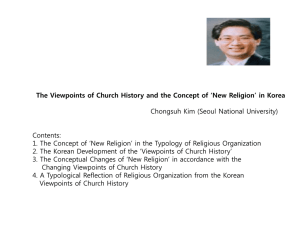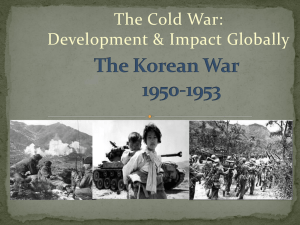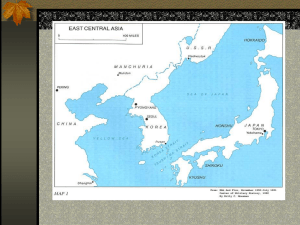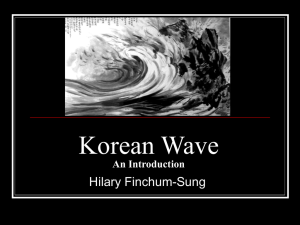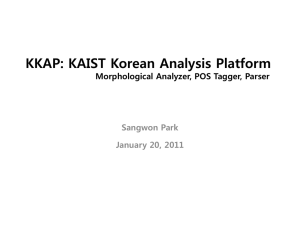AHON Chapter 25 Section 3 Lecture Notes
advertisement
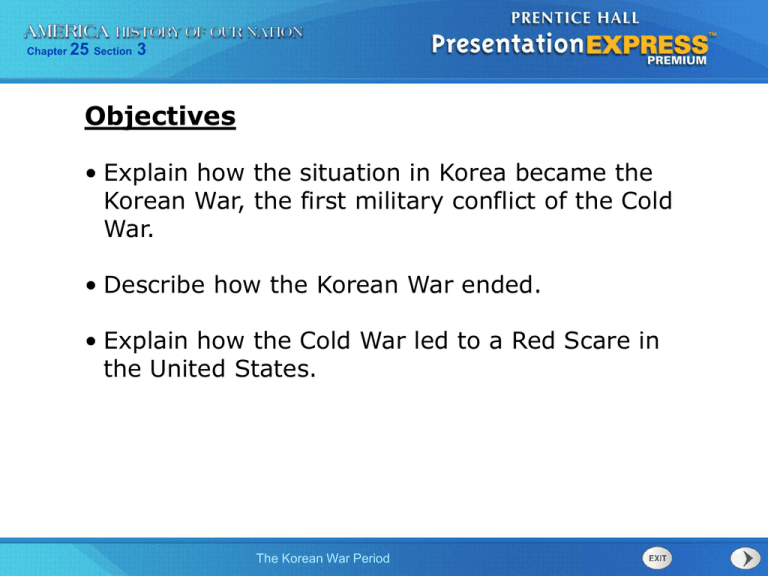
Chapter 25 Section 3 Objectives • Explain how the situation in Korea became the Korean War, the first military conflict of the Cold War. • Describe how the Korean War ended. • Explain how the Cold War led to a Red Scare in the United States. The Korean War Period Chapter 25 Section 3 Terms and People • stalemate – a situation in which neither side wins • demilitarized zone – an area which neither side controls • Joseph McCarthy – Wisconsin Senator who built his career by threatening to expose Communists • censure – to condemn The Korean War Period Chapter 25 Section 3 How did the United States respond to the invasion of Korea and its aftermath? In 1950, the Cold War suddenly turned hot in the East Asian nation of Korea. As American soldiers fought in the Korean War, other Americans hunted for Communists in America. The Korean War Period Chapter 25 Section 3 Before World War II, Japan had occupied Korea. After the war, Korea was divided. Communist, backed by the Soviet Union Non-Communist, backed by the United States On June 25, 1950, North Korean troops invaded South Korea. The Korean War Period Chapter 25 Section 3 President Truman responded quickly to the attack on South Korea. He urged the UN Security Council to send a military force to Korea. He appointed World War II hero General Douglas MacArthur to lead the force. Sixteen nations agreed to send troops, but 90 percent of the force would be American. The Korean War Period Chapter 25 Section 3 The first UN forces to arrive were badly outnumbered and poorly supplied. They were pushed back to the southern tip of South Korea. As fresh troops and supplies arrived, they were able to hold their ground. The Korean War Period Chapter 25 Section 3 In September, General MacArthur launched a bold counterattack. UN forces attacked at Inchon and pushed the North Koreans back across the border. They pursued the North Koreans almost to the Yalu River on the border of China. The Korean War Period Chapter 25 Section 3 China’s government was threatened as UN forces neared the Yalu River. Masses of Chinese soldiers crossed the border and attacked. UN troops were pushed back to South Korea. The Korean War Period Chapter 25 Section 3 The war in South Korea quickly settled into a stalemate. Neither side could win. General MacArthur argued that the UN must attack China to win the war. Truman disagreed. This conflict led him to fire MacArthur. The Korean War Period Chapter 25 Section 3 Peace talks began in July 1951 and lasted for two years. Meanwhile, the fighting continued. A cease-fire finally ended the fighting in July 1953. Both sides established a demilitarized zone, which still exists today. The Korean War Period Chapter 25 Section 3 The Korean War had an enormous impact on Korea, America, and other UN nations. Tensions between North and South Korea continue today. The Korean War Period Chapter 25 Section 3 The failure to win a decisive victory in Korea added to Americans’ fears about Communism. Will the United States ever defeat communism? The Korean War Period Are Communist spies secretly working to overthrow the U.S. government? Chapter 25 Section 3 In 1947, the House Un-American Activities Committee led an investigation to find Communists. Cartoons like this one criticized the committee’s methods. The car is a symbol for the committee. The committee “ran over” anyone in its way. The Korean War Period Chapter 25 Section 3 Two spying cases seized public attention. Alger Hiss, a former State Department official, was accused of passing secrets to Soviet agents. Julius and Ethel Rosenberg were accused of giving the secret of the atomic bomb to the Soviets. Hiss never served jail time for spying. They were found guilty and executed in 1953. The Korean War Period Chapter 25 Section 3 The climate of fear also led to the rise of Senator Joseph McCarthy of Wisconsin. In 1950, McCarthy accused many members of the U.S. State Department of being Communists. Over the next four years, he held a series of Senate hearings. The Korean War Period Senator Joseph McCarthy Chapter 25 Section 3 In 1954, a series of events brought about McCarthy’s downfall and the end of the Communist scare. McCarthy publicly made false accusations against the U.S. Army. He lost most of his following. The Senate voted to censure him. The Communist scare was mostly finished. The Korean War Period Chapter 25 Section 3 Section Review QuickTake Quiz The Korean War Period Know It, Show It Quiz

